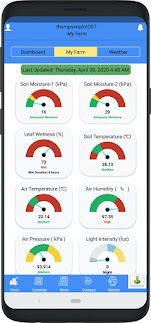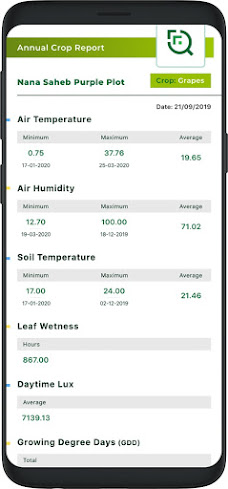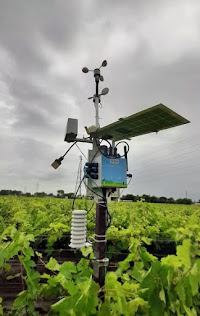The environment is becoming increasingly unpredictable. Floods, bush fires, erratic rain patterns are all caused due to human activity. The long term effects of the same are more than evident, with several environmental activists taking to mainstream media to highlight the harmful effects of environmental degradation. Climate change is a very real event, one that manifests itself in a myriad ways.
Market Opportunity

India is largely dependent on agriculture as a mode of subsistence. Tens of millions of people are reliant on good crop yield every year in order to sustain themselves and their families. A large part of the country’s food production is also dependent on the predictable rain cycles and ambient temperatures. With the ever-deteriorating environment, it is getting increasingly difficult to predict the many external factors that play a decisive role in crop yield.
Over the past few years, several agritech startups have taken to the forefront of solving for the many problems that plague the sector. From streamlining the logistics and delivery networks and creating last mile solutions that allow consumers access to fresh produce, to alternative credit lines that give farmers access to low-risk credit on demand, agritech startups are changing the very fabric of agriculture in the country.
Fyllo is one such startup that has emerged with the singular purpose of solving one of the toughest problems faced by millions of farmers across the country. Faced with a severe lack of information and data pertaining to soil quality, water content, and other environmental determinants, Fyllo aims to provide farmers with their IoT devices that enable them to make data-based decisions to reduce cost and improve output.
The Fyllo Thesis

The agritech space has been of immense relevance over the past few years. COVID-19 spurred an accelerated digital adoption spree across the value chain, allowing agritech startups to capitalize on an ever-growing consumer base. Fyllo is riding this post-COVID high as they enable farmers to assess various environmental factors that play a role in determining crop yield.
Fyllo sells three kinds of IoT devices, priced between Rs. 30,000- Rs. 60,000. They make a margin of 30% on each device installed in the farmland, along with a $100/year service charge. While their primary target have been individual farmers in the past few months, they are actively moving into larger consumer markets, targeting the likes of Mahindra Agro and others.
IoT solutions in the agritech space have become increasingly popular, allowing various other startups to create the same value proposition to farmers. Fyllo’s competitive advantage lies in the fact their devices are more affordable to farmers. Further, the founders Sumit and Sudhanshu are directly engaged with primary stakeholders, working closely with farmers to understand their problems and implement solutions for them. Finally, they are immensely execution focussed, actively building a network that allows them greater penetration into India’s rural heartland even as they forge ties with large corporates seeking their solutions.
100X’s conviction in Fyllo is two-fold: we are convinced of Sudhanshu and Sumit’s ability to create a disruptive solution that solves a critical problem, and we are convinced of the ever-growing market opportunity offered by the crop monitoring technologies space in India, post COVID.
Conclusion
The 100X team believes that Fyllo has the potential to create lasting solutions for millions of farmers across the country. At a time when climate change threatens every resident of this planet, it is critical to find solutions for stakeholders at the bottom of the pyramid. Fyllo’s unwavering commitment toward that goal is commendable, and the 100X team will continue to support them for the entirety of their journey!

